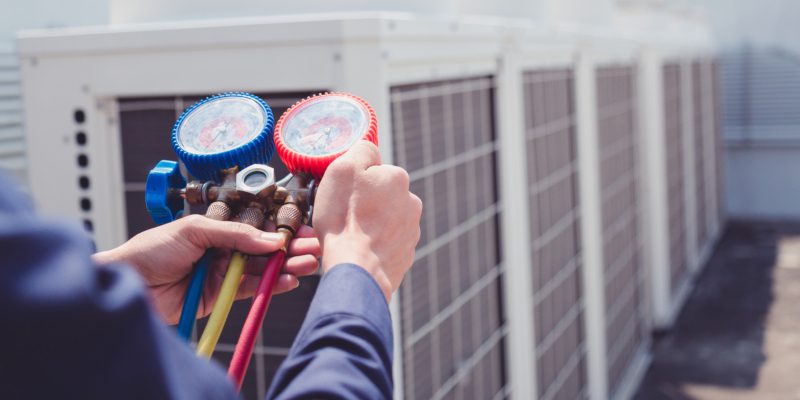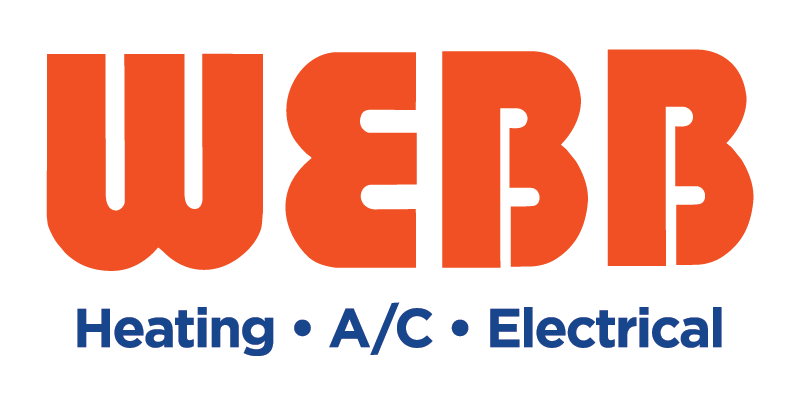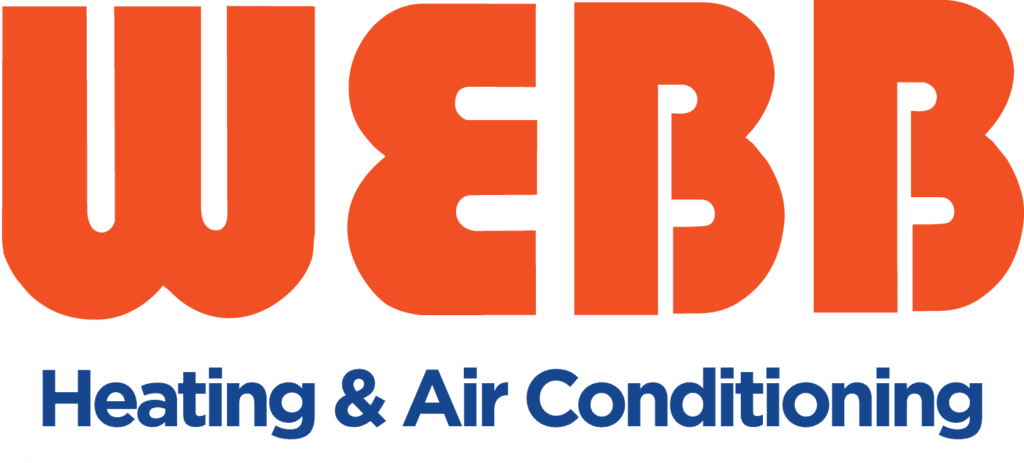Which is Better for Heating or Cooling in North Carolina: Electric or Natural Gas?

Choosing the right heating and cooling system for your North Carolina home can feel overwhelming. Both electric or natural gas systems offer distinct advantages. The right choice depends on your home’s specific needs, location, and long-term energy goals.
At Webb Heating, Air Conditioning, and Electrical, we’ve helped countless homeowners across North Carolina navigate this choice, ensuring they select the most efficient and cost-effective solution for their properties.
Key Factors to Consider in North Carolina
North Carolina’s climate swings from mild winters with occasional cold snaps to summers with high humidity and sustained heat, especially in cities like Greensboro and Winston-Salem. Because the seasons vary so widely, your system needs to be able to handle both heating and cooling demands efficiently throughout the year.
Beyond climate, several other practical factors influence the electric versus natural gas decision:
Understanding whether to choose electric or natural gas is crucial in making an informed decision.
- Energy costs vary across the state depending on your utility provider and location.
- Availability differs significantly, while electric service reaches virtually every home, natural gas infrastructure isn’t universally accessible, particularly in rural areas around Advance.
- Environmental impact matters to homeowners who want to reduce their carbon footprint while maintaining comfortable indoor temperatures.
Webb Heating, Air Conditioning, and Electrical stays current on local regulations and incentive programs throughout the Piedmont Triad, helping you take advantage of rebates and tax credits that can offset installation costs.
Electric Systems for Heating and Cooling
Electric heat pumps have become increasingly popular in North Carolina because they handle both heating and cooling in a single system. Unlike traditional setups that require separate furnaces and air conditioners, a heat pump does both jobs by transferring heat rather than generating it. In summer, it moves heat out of your home. In winter, it extracts heat from outdoor air and brings it inside.
This transfer method makes heat pumps highly efficient in moderate climates like North Carolina’s. In cities like Raleigh where temperatures rarely reach extreme lows, heat pumps can maintain comfortable temperatures year-round while consuming less energy than systems that generate heat through combustion or electric resistance.
Electric heat pumps offer several key benefits:
- Clean operation with no combustion byproducts or emissions inside your home
- Easier installation in urban settings like Charlotte where gas lines may not be readily available
- Dual functionality built into one system instead of separate heating and cooling equipment
- Lower maintenance requirements compared to combustion-based systems
However, electric systems have limitations worth considering. Operating costs can increase during peak demand periods, particularly when running continuously during humid summer conditions that require constant dehumidification. Additionally, when temperatures drop below freezing, heat pumps may require supplemental heating to maintain comfort, which can increase energy consumption during the coldest winter days.
Natural Gas Systems for Heating and Cooling
Natural gas furnaces generate heat through combustion, providing rapid warmth that can quickly bring a cold home to a comfortable temperature. Unlike heat pumps that provide both heating and cooling, gas furnaces handle heating only. Most homeowners pair them with a separate electric air conditioner for cooling.
Their advantages include:
- Lower fuel costs in areas with established gas infrastructure, particularly throughout the Piedmont Triad
- Powerful heating that maintains comfort even during the coldest winter nights
- Long operational lifespan when properly maintained
- Reduced dependence on the electrical grid during power outages (though blowers still require electricity)
However, combustion also produces emissions that must be properly vented outdoors, which can complicate installation in older homes that weren’t originally designed for gas systems. Gas lines also require professional installation and periodic safety inspections. And if your property doesn’t currently have natural gas service, the infrastructure costs to bring gas lines to your home can be substantial.
Cost and Efficiency Comparison
If you’re replacing your heating and cooling system, you need to balance upfront cost considerations with overall efficiency in the long term.
Upfront cost generally varies depending on the system type and your property’s existing infrastructure. As a rule, heat pumps typically require a higher initial investment than gas furnaces, provided that you don’t also need to have gas lines put in.
Energy efficiency ratings are a helpful way to compare systems’ long-term impact:
- SEER (Seasonal Energy Efficiency Ratio) measures cooling efficiency. Higher numbers mean better performance and lower operating costs.
- AFUE (Annual Fuel Utilization Efficiency) measures heating efficiency, telling you how much energy converts to actual heat.
Long-term savings depend largely on:
- North Carolina utility rates in your area
- How efficiently you use your system
Webb Heating, Air Conditioning, and Electrical takes a personalized approach to calculating return on investment, factoring in your local energy prices, expected system usage, available rebates, and your home’s specific heating and cooling loads. This ensures you understand not just the upfront costs but the total cost of ownership over your system’s lifespan.
North Carolina-Specific Insights
In North Carolina, state-level and utility-sponsored programs increasingly support energy-efficient upgrades. Electric systems often qualify for more generous rebates, particularly in coastal areas like Wilmington where utilities actively promote high-efficiency heat pumps. This can significantly reduce the cost of electric systems, making them more competitive with natural gas options.
In particular, hybrid systems have become popular throughout the region because of their advantages in unpredictable weather. Because they combine a heat pump with a gas furnace backup, these systems can automatically switch to whichever option runs most efficiently at current temperature.
Several property-specific factors influence which system works best:
- Home size and layout
- Insulation quality determines energy needs
- Usage patterns impact operating costs
- Existing infrastructure may favor one system over another
Webb’s technicians evaluate these factors when making recommendations throughout the Piedmont Triad, ensuring your system matches your home’s actual needs.
Why Choose Webb Heating, Air Conditioning, and Electrical?
Do you need help choosing between electric and natural gas systems? Webb Heating, Air Conditioning, and Electrical can help. Our technicians understand how different systems perform in our state’s climate and stay current on the latest efficiency technologies.
We’ll assess your property, discuss your priorities, review your energy costs, and help you choose the best system for your unique needs. Contact Webb Heating, Air Conditioning, and Electrical today to schedule an assessment.

